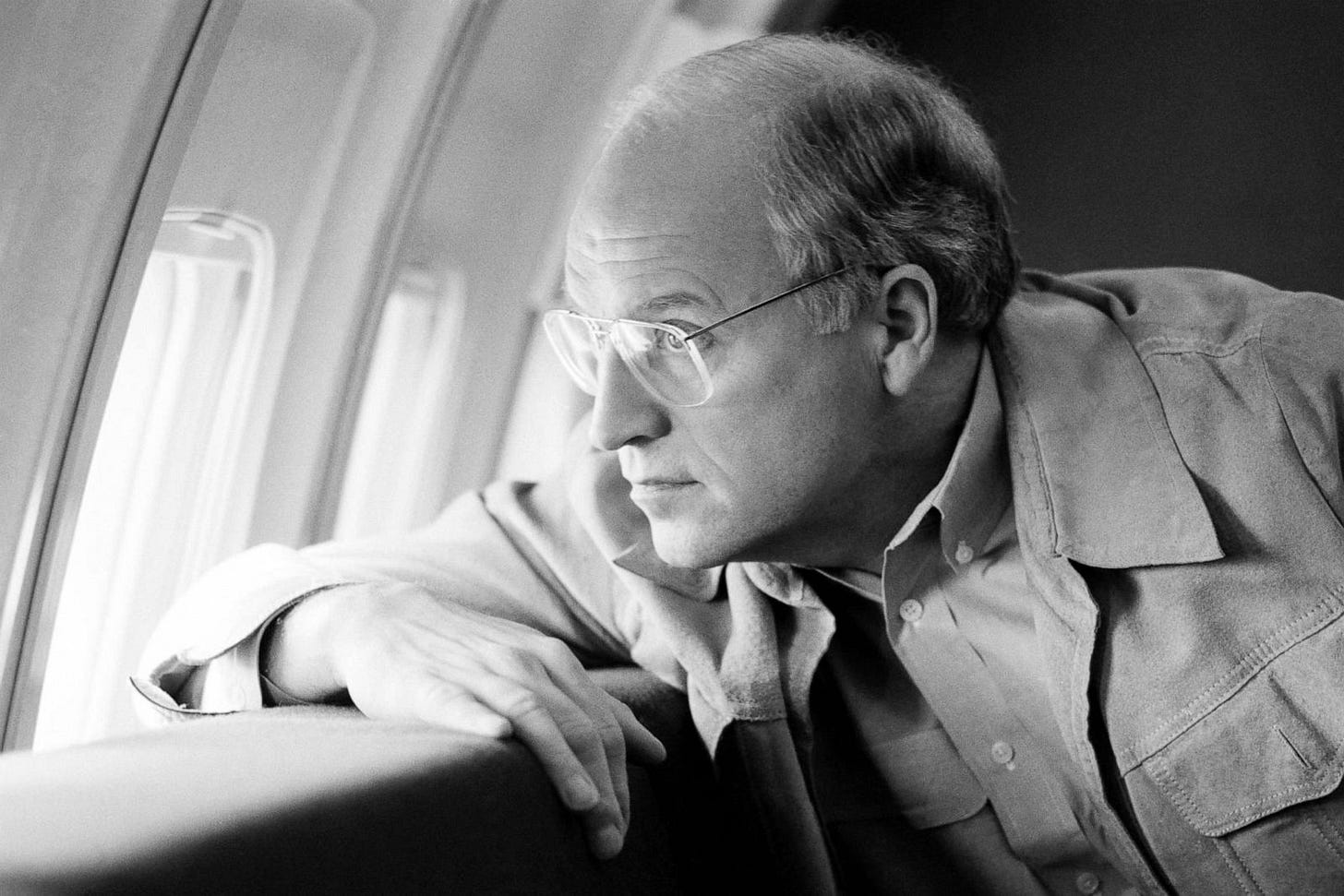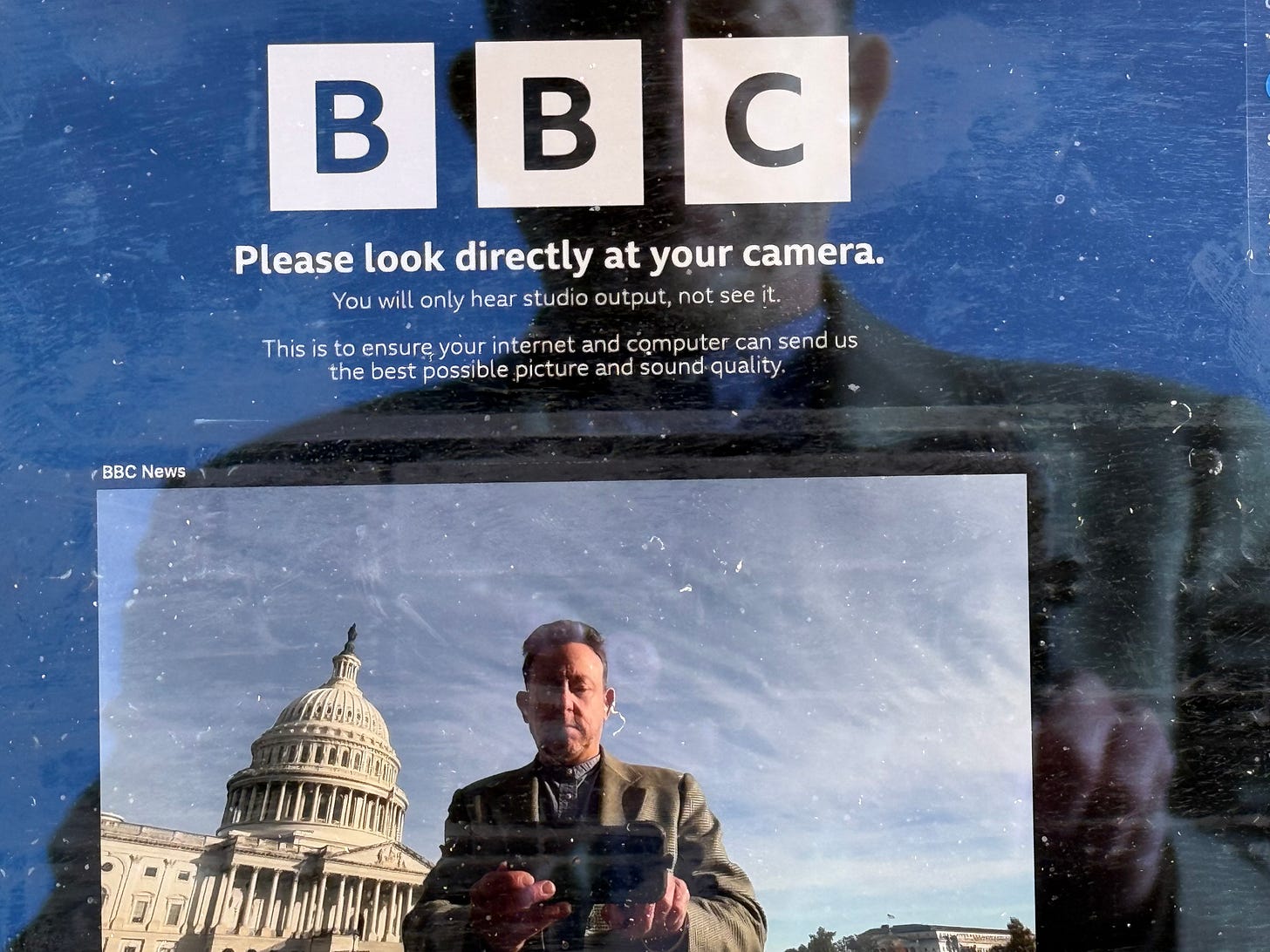Deconstructing Dick Cheney
The former US Vice President who was one for the history books
As I was riding the Virginia Rail Express into Washington this morning, a producer from BBC texted me requesting I go live on the global TV news channel to discuss the legacy of the 46th US vice president, Dick Cheney, who had died.
Cheney, his polarizing politics aside, was well prepared to assume the highest office, if needed, unlike many of America’s vice presidents.

It took a moment to remember Cheney was still alive in 2025 after five heart attacks. But it was just a year ago the staunch conservative stunned Republicans and Democrats alike by announcing he would vote for Kamala Harris, not Donald Trump.
Cheney fully broke publicly with Trump after the president’s supporters stormed the Capitol on January 6, 2021.
“In our nation’s 246-year history, there has never been an individual who is a greater threat to our republic than Donald Trump,” said the former vice president, in an online campaign ad for the failed re-election bid of his Congresswoman daughter, Liz Cheney, calling Trump a coward and liar for not acknowledging his 2020 election loss to Joe Biden (who in a face-to-face debate had called Cheney the country’s most dangerous vice president).
Cheney’s disenchantment with Trump actually emerged much earlier. Despite his reputation as “Darth Vader” who, as a monotone vice president, had been indulgent of reckless wars, spying on Americans and waterboarding, Cheney was taken aback by Trump’s extremism.
“I think this whole notion that somehow we can just say no more Muslims, just ban a whole religion, goes against everything we stand for and believe in,” Cheney said of one of Trump’s most infamous decrees.
I replied to the BBC producer that my on-air analysis of the Cheney legacy would have to wait until my train pulled into Union Station.
After a pitstop at Bullfrog Bagels inside the station (the best salmon and bagel combo I’ve found in the DMV region), I walked to the Capitol and angled my laptop so that the dome would be bright and I could properly light at least one side of my face. Television is optics.
Most TV networks have their DC studios a brief walk from the Capitol but BBC’s bureau is near Georgetown so that was not an option on such short notice.
I was able to set up the shot with just a couple of minutes to spare and while the framing was not ideal, the BBC control room in London gave it a thumbs up.
You can watch the end result here:
As I am no longer in the employ of a news organization, my analysis is permissibly more blunt and free-wheeling. Recently, a program host introduced me as a historian (yes, I did write a book about the U.S. presidency and covered a few administrations), so I took academic license to proclaim Cheney the most powerful vice president in U.S. history. After all, how many vice presidents who never became presidents are more than historical footnotes?
FDR’s initial vice president, “Cactus Jack” Garner, is quoted as saying the job was “not worth a pitcher of piss.” (A quote usually cleaned up to substitute “piss” with “spit.”)
George H.W. Bush’s sidekick, Dan Quayle, is best remembered for mangling facts and grammar and his creative spelling of “potatoe.” This was long before Donald Trump’s cryptic “covfefe.”
Cheney, on SNL, was parodied by Darrell Hammond more than two dozen times, on par with the frequency accorded the equally wooden Al Gore (also played by Hammond) on the NBC comedy program.
My BBC appearance did not permit time to dwell on other fascinating snippets of the Dick Cheney story. He did not kill anyone in a duel, as did Vice President Aaron Burr (see Alexander Hamilton). But Cheney, during a hunting trip, accidentally pumped lead into a friend, while wielding a 28-gauge Perazzi shotgun.
Another fun fact: Cheney had his defibrillator’s wireless function switched off fearing terrorists might attempt to remotely send his heart a fatal shock.
Cheney, who flunked out of Yale and was the son of a USDA soil conservation agent, rising to the éminence grise role initially in the Gerald Ford administration, was well aware of how he was perceived.
“Am I the evil genius in the corner that nobody ever sees come out of his hole?” he once asked. “It’s a nice way to operate, actually.”




Dick Cheney: 1941-2025